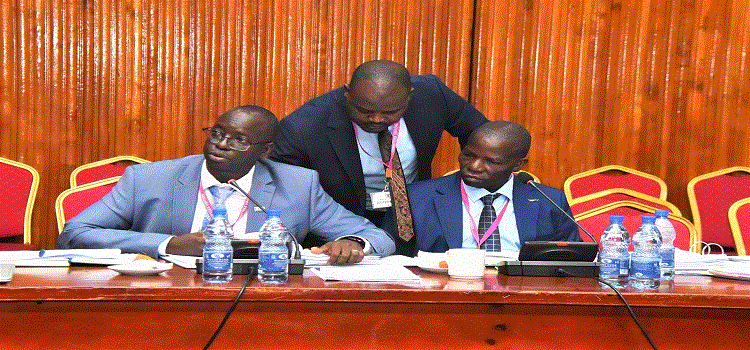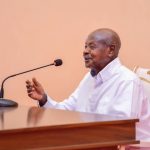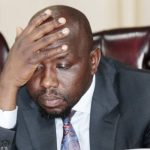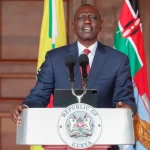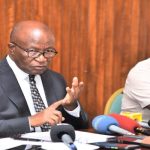Lawmakers sitting on the Public Accounts Committee (PAC-Central Government) quizzed officials from the Office of the President about the bloated list of 139 Presidential Advisors, yet some of these advisors are already enjoying benefits from their previous Constitutional offices.
Officials from the Office of the President led by Permanent Secretary Yunus Kakande were appearing before the PAC-Central Government to respond to queries raised in the Auditor General report for the year ending June 30, 2023.
Kasilo County MP Elijah Okupa asked Kakande to explain why several Ugandans have been appointed as Presidential Advisors but have never been paid any emoluments.

Before the Permanent Secretary could provide an answer to Okupa, Committee Chairperson Muwanga Kivumbi asked for clarification on Uganda’s number of presidential advisors.
In response, Kakande told the Committee that President Yoweri Museveni has 139 advisors, the latest of whom is former Vice President Prof. Gilbert Bukenya, who will provide advice on environmental matters.

Kivumbi, who is also the Butambala County legislator, wondered why some political leaders like Edward Ssekandi, who held three offices as former Vice President, former Speaker and former Deputy Speaker, are paid a salary and full benefits as Senior Presidential Advisors yet continue to enjoy retirement benefits from three fronts.
The challenge with it, even with former leaders, is that while they are serving, they are generously paid. The issue as a former leader is that you weren’t on charity. While you serve, you get adequately paid; therefore, for them to also encroach permanently to earn from multiple sources is a little bit morally not right. The other thing we are concerned about is Presidential Advisors like Edward Ssekandi is he paid full time like the Presidential Advisor and at the same time, does he enjoy all his benefits as former Vice President, former Speaker and former Deputy Speaker,” said Kivumbi.
Kakande informed the Committee that there was no problem with a former holder of a Constitutional Office to be appointed to serve in another capacity.
As a Senior Presidential Adviser, we pay him (Ssekandi) his full benefits as Presidential Advisor, that is salary, gratuity which is 40 percent of his salary, but of course he has other areas (benefits) from the Ministry of Public Service, revealed Kakande.
This prompted the Bugiri Municipality MP, Asuman Basalirwa to ask Kakande if he had ever taken interest in the fact that the likes of Ssekandi, Bukenya (both former Vice Presidents) as well as former Prime Ministers; Amama Mbabazi and Ruhakana Rugunda are drawing different benefits from the consolidated fund.
Does it interest the Permanent Secretary in such scenarios to ascertain a possibility of someone getting double or triple entitlements from the same consolidated fund? Is it something that would be of interest to you? asked Basalirwa.
In response, Kakande said,
These are the prerogatives of the President as you know, as the Permanent Secretary, Office of the President, when it comes to the President, I am supposed to implement I am thinking one of these days when you have a meeting because normally PAC can have a meeting. The issue of former leaders is a bit complicated that is why when you meet the President because he normally meets PAC, you need to bring this to his attention.
Kivumbi, however, rejected Kakande’s explanation saying that there is need for Uganda to adopt best practices from other countries to ensure that there are no such double expenditures on individuals.
In other jurisdictions, you pick whatever is higher, you could be entitled in the arrangement but you decide whatever is higher is whatever you take, but you can’t earn from multiple places in consolidated fund.Much as you are under directive of the President, you are under care to ensure that that directive is implemented in accordance to the law, he said.
Basalirwa noted that although the Permanent Secretary may not be to blame for this matter, he takes an oath while assuming office to advise the President.
My issue with him he also has a duty to the country and a duty to the President. For us, why we call ourselves officers of the court, you will find a matter, and you will guide the judge even if he is overall. Is it something you have found necessary? asked Basalirwa.
The Permanent Secretary told the Committee that it is not in his mandate to ask the President not to appoint former leaders as his advisors.
Audit queries
During the same meeting, MPs raised concern over the failure by the Office of the President to utilise the UGX 4.3 billion earmarked for payment of pensions for former staff, a shortfall the Permanent Secretary blamed on the failure by some of the staff to submit requisite documents like life certificate that are required as proof of life for Government to continue paying pensioners.
The Office of the President is very concerned when it comes to paying pensions. And where we have some of this money going back, it isn’t true that we don’t care and want to take it back, but the problem is, some of them (pensioners) die, and when they die, this money remains lying there. And some of them when they clock 75 years, mandatorily, they must give us a certificate to show that they are still alive. Failure to give us a certificate, we can’t now continue paying you unless you come back and say that ‘you guys, I am still alive’, so that is the money which remains, explained Kakande.
Auditor General John Muwanga, in his report, also raised concerns regarding the payroll of the Office of the President, pointing out that out of the 1,026 employees as per February 2023 salary payroll records, 983 staff were fully verified, 19 were partially verified while 24 staff did not show up for verification.
The Auditors added that a total of 305 employees on the main payroll had inconsistencies in their names, NINs, dates of birth and gender captured in the main and short term contract payrolls and data captured by NIRA on the National Identity Cards, inconsistencies Auditors warned that it could undermine the integrity of the entity’s records and may complicate the employee service history and retirement procedures.


